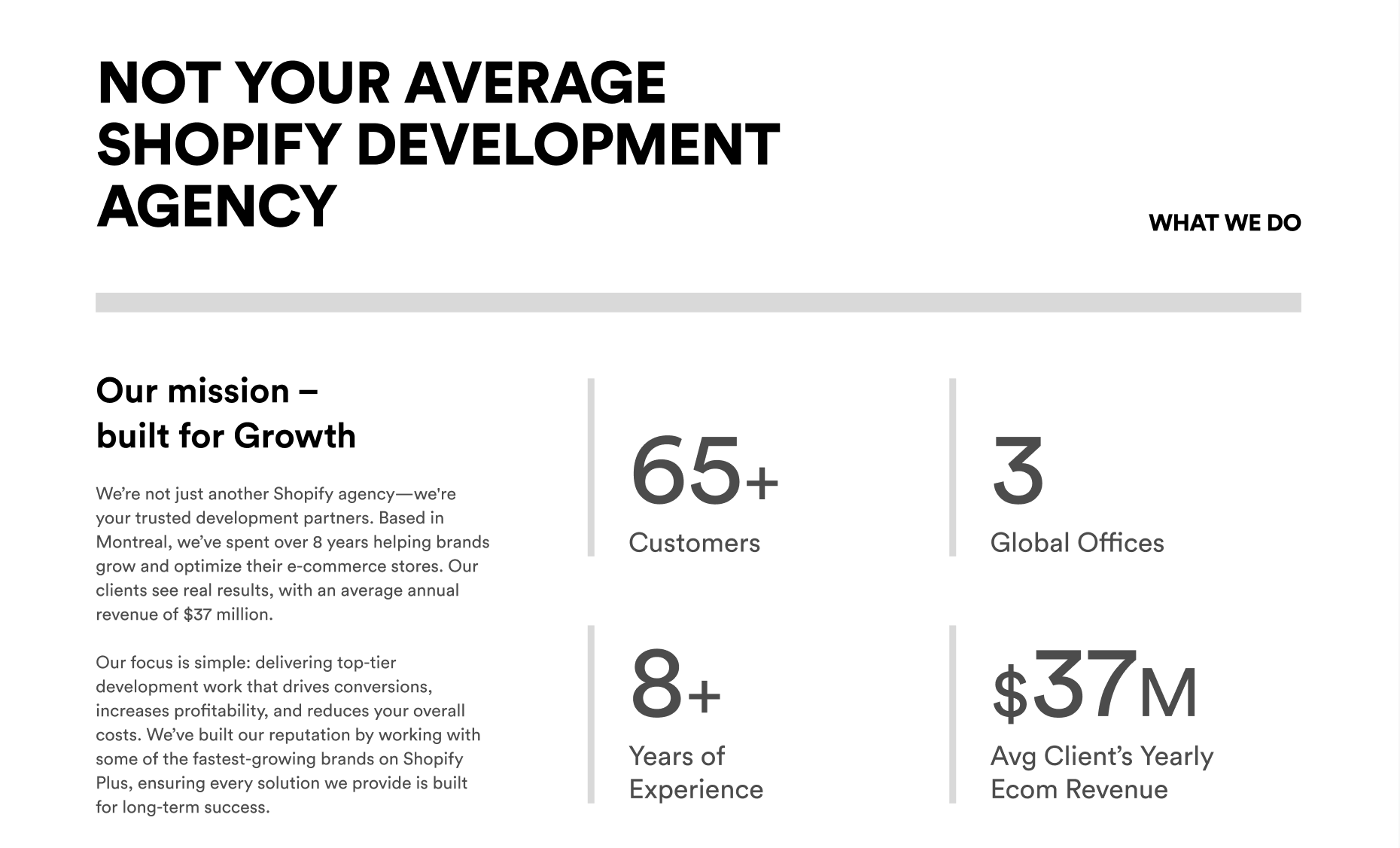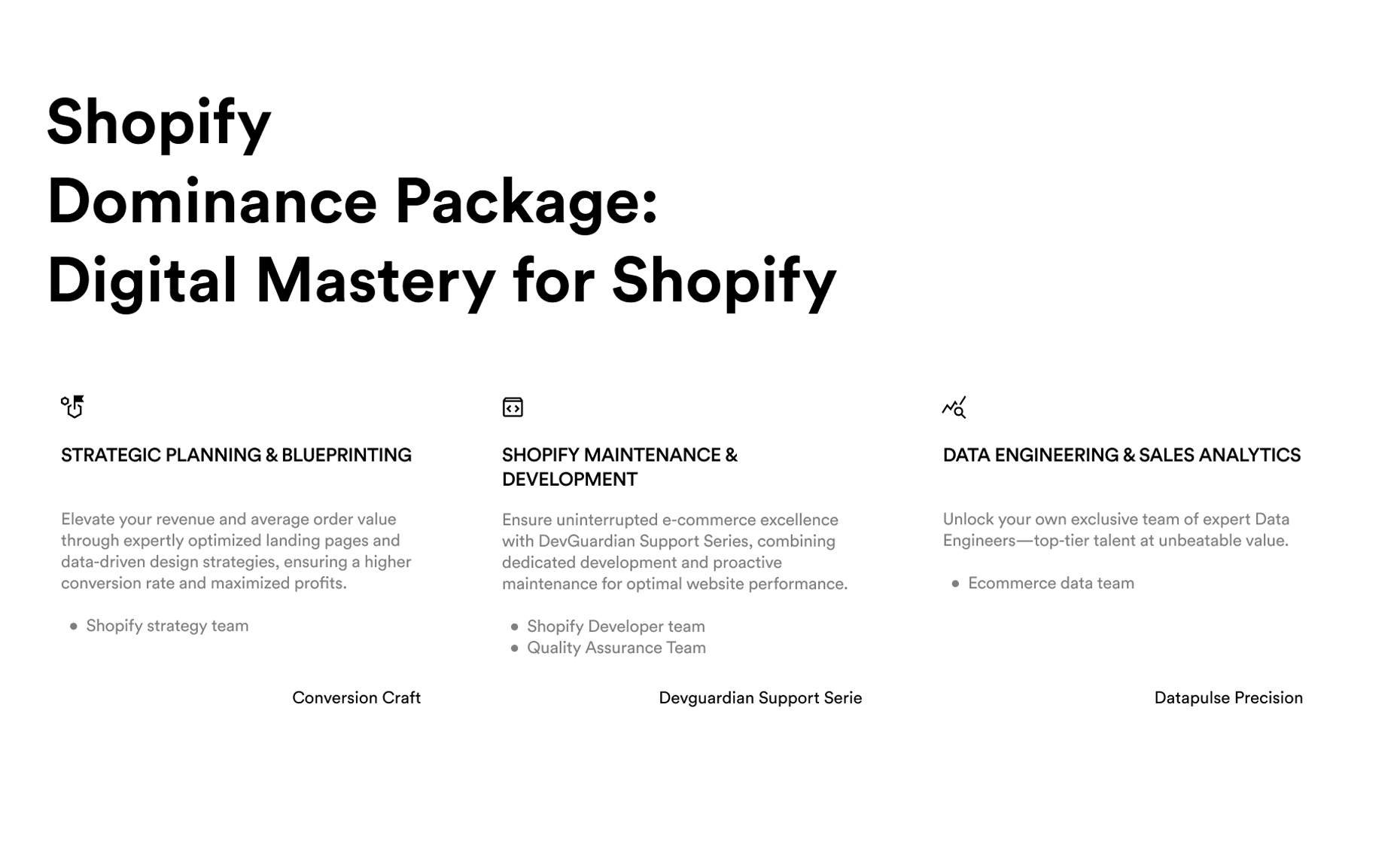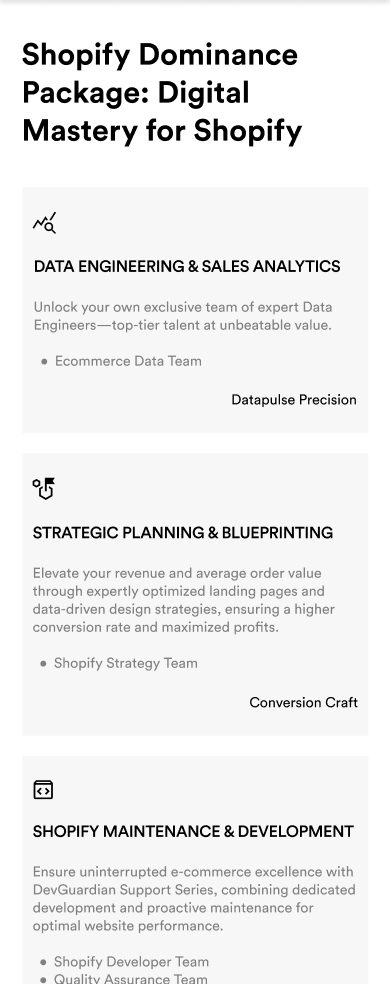
Discover the ultimate showdown between WooCommerce and Shopify to find out which e-commerce platform is the perfect fit for your online business.
Welcome to our comprehensive guide on choosing the right e-commerce platform for your business. In this article, we will delve into the key features, pros and cons, and other important considerations of two popular e-commerce platforms - WooCommerce and Shopify. By the end, you'll have a better understanding of which platform is the best fit for your unique needs.
Understanding E-Commerce Platforms
Before we dive into the specifics of WooCommerce and Shopify, let's take a moment to define what e-commerce platforms are and why they are crucial for online businesses.

Defining E-Commerce Platforms
An e-commerce platform is a software solution that enables businesses to sell products or services online. It provides a range of tools and functionalities to manage online stores, including product listings, inventory management, payment gateways, and marketing features.
These platforms also offer customizable themes and templates to create visually appealing online storefronts that reflect the brand identity of the business. Additionally, they often come equipped with analytics tools to track sales performance, customer behavior, and other key metrics to help businesses make informed decisions.
Importance of Choosing the Right Platform
Choosing the right e-commerce platform is a vital decision that can greatly impact the success of your online business. The platform you choose should align with your business goals, requirements, and technical expertise to create a seamless and efficient online shopping experience for your customers.
Furthermore, the scalability and flexibility of the platform are crucial factors to consider. As your business grows, you may need to add new features, integrate with third-party services, or expand to new markets. A robust e-commerce platform should be able to accommodate these changes and support your business's evolution over time.
Introduction to WooCommerce
WooCommerce is a powerful e-commerce plugin that seamlessly integrates with WordPress, the world's most popular content management system. Let's explore some of its key features:
Key Features of WooCommerce
One of the standout features of WooCommerce is its user-friendly interface, which makes it easy to navigate and manage your online store. It offers a wide range of customizable themes and templates, allowing you to create a visually appealing and unique online storefront.
Additionally, WooCommerce provides a comprehensive set of tools for inventory management. You can easily track stock levels, set up backorders, and manage product variations. This ensures that you have full control over your inventory, minimizing the risk of overselling or running out of stock.
Another major advantage of WooCommerce is its extensive plugin ecosystem. With thousands of plugins available, you can enhance the functionality of your online store with features such as advanced analytics, marketing tools, and inventory management. For example, you can integrate your store with popular email marketing platforms like Mailchimp to automate your email campaigns and drive customer engagement.
Furthermore, WooCommerce provides robust payment options, with support for multiple payment gateways, including PayPal, Stripe, and Square. This ensures that your customers have a seamless and secure checkout experience. You can also offer alternative payment methods like Apple Pay and Google Pay, giving your customers more flexibility in how they pay for their purchases.
Pros and Cons of WooCommerce
Like any e-commerce platform, WooCommerce has its pros and cons. Some advantages include:
- Easy integration with WordPress, giving you access to a vast array of plugins and themes.
- Highly customizable and flexible, allowing you to tailor your online store to your specific needs.
- Strong community support, with numerous forums and resources available for assistance.
On the other hand, WooCommerce may not be the best fit for everyone. Some potential drawbacks include:
- Requires technical know-how, especially if you want to modify the code or install custom plugins. However, there are many online resources and tutorials available to help you navigate the technical aspects.
- Can become resource-intensive as your store grows, potentially requiring additional server resources. It's important to regularly optimize your website and invest in reliable hosting to ensure smooth performance.
- May require more time and effort to set up compared to other platforms. While WooCommerce offers a user-friendly interface, setting up your online store and configuring all the necessary settings can take some time. However, the flexibility and customization options it provides make it worth the initial investment.
In conclusion, WooCommerce is a feature-rich e-commerce plugin that offers a seamless integration with WordPress. Its user-friendly interface, extensive plugin ecosystem, and robust payment options make it a popular choice for businesses of all sizes. While it has its pros and cons, WooCommerce provides the tools and flexibility needed to create a successful online store.
Introduction to Shopify
Shopify is a popular and user-friendly e-commerce platform that provides an all-in-one solution for creating and managing online stores. Here's what you need to know:
Starting an online store can be a daunting task, but with Shopify, the process becomes a breeze. Its intuitive and user-friendly interface allows you to navigate through the platform effortlessly. Even if you have no coding knowledge, you can still create a visually stunning online store using the drag-and-drop builder and customizable themes provided by Shopify.
But Shopify doesn't stop at just aesthetics. It offers a wide range of built-in features that are essential for running a successful e-commerce business. From inventory management to order fulfillment, Shopify has got you covered. It even seamlessly integrates with major shipping carriers, making the shipping process smooth and hassle-free for both you and your customers.
One of the biggest concerns when it comes to running an online store is server management and downtime. However, with Shopify, you can put those worries to rest. Shopify provides a secure and reliable hosting infrastructure, ensuring that your online store is always up and running. No need to deal with the technical aspects of server management anymore!
Furthermore, Shopify understands the importance of offering multiple payment options to your customers. That's why it provides integration with various payment gateways, allowing you to accept a variety of payment methods. Whether your customers prefer credit cards, PayPal, or other popular payment options, Shopify has you covered.
Pros and Cons of Shopify
Just like any other e-commerce platform, Shopify has its own set of advantages and disadvantages. Let's take a closer look:
- Easy setup and user-friendly interface, making it accessible to beginners.
- Secure and reliable hosting, eliminating the need for separate hosting services.
- 24/7 customer support, ensuring that help is always available when you need it.
While Shopify offers a multitude of benefits, there are a few potential drawbacks to consider:
- Less flexibility and customization options compared to platforms like WooCommerce.
- Transaction fees for using external payment gateways, unless you use Shopify Payments.
- Costs can add up, especially as your business grows and requires more advanced features.
Despite these drawbacks, Shopify remains a top choice for many online store owners due to its ease of use, robust features, and reliable support. So, if you're looking to start your own online store, Shopify might just be the perfect platform for you.
Comparing WooCommerce and Shopify

Now that we've explored the key features and pros and cons of both WooCommerce and Shopify, let's compare them in a few essential areas:
Ease of Use
In terms of ease of use, Shopify takes the lead. Its intuitive interface and drag-and-drop builder make it accessible to users of all technical abilities. WooCommerce, on the other hand, requires a bit more technical know-how, especially if you want to customize your store extensively.
Customization Capabilities
If customization is a top priority for you, WooCommerce is the winner. With its deep integration with WordPress, you have access to thousands of plugins and themes, allowing you to create a truly unique online store. Shopify, while still customizable, offers a more streamlined and beginner-friendly approach.
Pricing and Payment Options
When it comes to pricing, WooCommerce has an advantage. It is a self-hosted solution, meaning there are no ongoing monthly fees. However, you'll need to consider the cost of web hosting, domain registration, and potential plugin purchases. Shopify, on the other hand, offers fixed monthly plans and includes hosting, but charges transaction fees for using external payment gateways unless you use Shopify Payments.
Security Features
Both WooCommerce and Shopify provide robust security features to protect your online store and customer data. However, Shopify takes the lead in this category by handling all security aspects, including server maintenance and updates, allowing you to focus on growing your business.
Making the Right Choice for Your Business
Now that we've compared the key aspects of WooCommerce and Shopify, it's time to consider how they align with your business needs:

Assessing Your Business Needs
Take a moment to evaluate your current and future business requirements. Consider factors such as the size of your product catalog, the number of expected monthly transactions, and the level of customization and scalability you require.
Evaluating Your Technical Skills
Be honest about your technical expertise. Are you comfortable managing a self-hosted platform like WooCommerce, or would you prefer the ease of use offered by a hosted solution like Shopify?
Considering Your Budget
Evaluate your budget and resources. While WooCommerce may offer more cost-effective options in terms of monthly fees, it requires additional costs for hosting and potentially premium plugins. Shopify, although pricier, includes hosting and provides a more predictable cost structure.
Planning for Future Growth
Consider the scalability and long-term growth potential of your chosen platform. Will it be able to accommodate your business growth, both in terms of features and performance?
By carefully assessing these factors and taking into account the information we've provided on WooCommerce and Shopify, you'll be better equipped to make an informed decision that suits your unique business needs.
Remember, there's no definitive answer as to which platform is the best - it ultimately depends on your specific requirements and preferences. Both WooCommerce and Shopify have proven track records and a large user base, so you're in good hands either way.
We hope this article has shed some light on the WooCommerce vs Shopify debate. Whichever platform you choose, we wish you success in your e-commerce journey!











